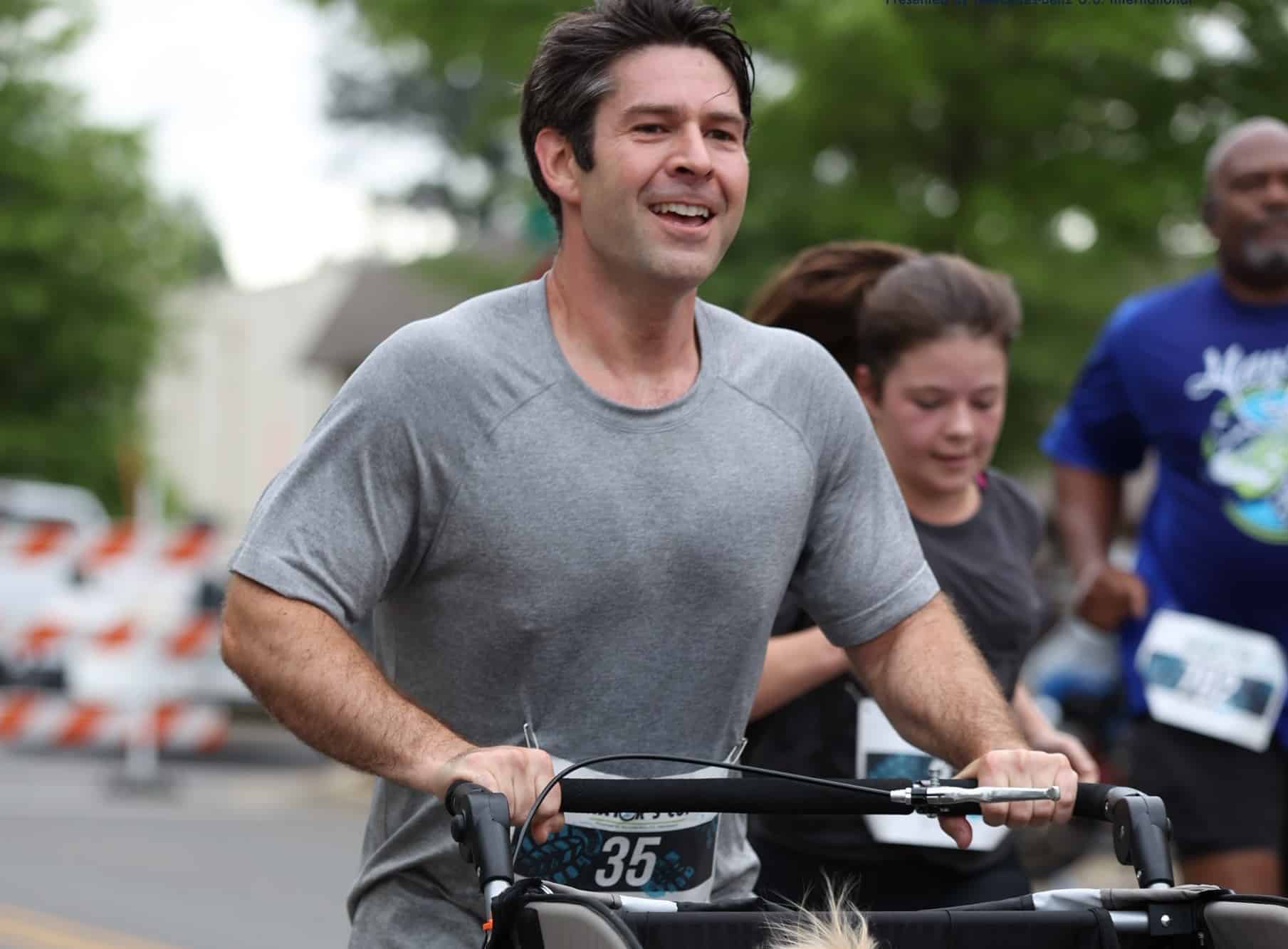The Psychology of Endurance: Harnessing Mind Power for Trail Running Success
As a UESCA certified running coach with extensive experience in long-distance trail running, I know firsthand the significant role mental strategies play in endurance sports. The psychology of endurance is just as critical as physical conditioning, providing the framework for athletes to push past perceived limitations and maintain focus over long distances. Trail running, in particular, presents unique mental challenges due to its varying terrain and often solitary nature, making psychological preparedness key for success.
To excel in trail running, I emphasize the development of a robust mental toolkit. This includes techniques such as breaking down long distances into manageable segments, positive self-talk, and visualization. Cultivating mental resilience and toughness can transform a strenuous run into a more achievable endeavor. By training the mind, a runner can effectively navigate the mental fatigue that inevitably accompanies endurance running.
Implementing mental strategies effectively requires practice and consistency. Just like building physical stamina, enhancing mental endurance takes time and dedication. Runners should integrate these psychological skills into their training regime to ensure they are second nature on race day. With the right mental approach, the challenges of long-distance running can be met with confidence and determination.
Endurance Psychology for Trail Runners – an Overview
Trail running is as much a mental endeavor as it is a physical one. In understanding endurance psychology, we explore the cognitive components, emotional regulation, and the impact of motivation and self-talk on performance.

Cognitive Components of Endurance
My experience in trail running has taught me that focus is crucial for maintaining mental toughness. An endurance athlete’s ability to concentrate on the task and manage mental fatigue determines their psychological resilience. Mental health is fortified by developing psychological skills that boost concentration and sustain effort throughout a race.
- Psychological Skill: Focus
- Approach: Regular mindfulness training
- Outcome: Enhanced concentration, reduced mental fatigue
Emotional Regulation in Trail Running
Emotional regulation is key when facing uncertain trail conditions and high-effort challenges. By managing emotions, runners can prevent negative self-talk from undermining their performance. I recommend specific strategies to maintain a positive mindset, especially during difficult sections of a trail.
- Emotion Regulation Strategy: Positive Self-Talk
- Approach: Affirmations and constructive feedback
- Result: Better emotional control and improved mental toughness

The Role of Motivation and Self-Talk
Motivation fuels the drive to start and persist in endurance running. As a coach, I emphasize the importance of intrinsic motivation to propel runners through physical and psychological barriers. Effective self-talk, a form of internal motivation, can be harnessed to inspire effort and combat the onset of psychological fatigue.
- Motivation Type: Intrinsic
- Source: Personal goals and enjoyment
- Effect: Sustained effort and endurance
My purpose as a coach is to empower athletes with these insights for them to reach their full potential in endurance trail running.
Preparing the Mind for Distance Running

Trail running’s unique challenge lies in its mental demands; training the mind is as crucial as honing physical fitness. Strong mental preparedness ensures focus, vigour, and resilience across miles of challenging terrain.
Mental Training Techniques
I coach runners to develop psychological skills through specific mental training techniques. Consistency is key—mental training should be integrated into your daily routine. Below are techniques to improve mental fortitude:
- Goal Setting: Establish SMART (Specific, Measurable, Achievable, Relevant, Time-bound) goals for both training and races.
- Self-Talk: Use positive mantras to bolster confidence and override negativity. For example, “I am strong” or “I can do this”.
- Routine: Build a pre-run routine to set a positive mindset and reduce anxiety.
Visualization Strategies
Visualization enhances focus by creating a mental image of success, which primes the body to respond during the actual event. Here’s how I integrate visualization:
- Course Familiarization: Study the course map and visualize navigating the trail‘s twists, climbs, and descents.
- Performance Rehearsal: Mentally rehearse crossing the finish line or conquering tough sections to prepare for race day scenarios.
Mindfulness and Mental Resilience
Mindfulness develops mental resilience by keeping the mind in the present, an essential skill during long-distance runs. My approach includes:
- Breathing Exercises: Teach controlled breathing to maintain calm and rhythm during running.
- Mindful Running: Encourage awareness of the body’s sensations and the surrounding environment to stay present and engaged.
Incorporating these strategies into your regular training will prepare your mind for the psychological demands of long-distance trail running.
Physical and Mental Intersection

In the realm of long-distance trail running, success hinges on the harmonious relationship between physical ability and mental fortitude. In order to persevere, one must understand how physical endurance and mental performance intersect.
Running Physiology and Mental Performance
My training experience with long-distance runners has underscored the importance of running physiology in enhancing mental performance. Physiologically, the body adapts to the demands of extended workouts by improving cardiovascular strength and muscular endurance. These improvements are not just physical; they are psychological victories as well. Efficient circulation and respiration can delay fatigue, allowing runners to maintain focus and sharpness throughout their run, which is crucial for decision-making and maintaining a strong mental approach.
- Cardiorespiratory Endurance: Optimal oxygen uptake keeps the mind clear and alert.
- Muscular Strength: Sustained muscular power helps in preventing mental fatigue.
The Impact of Physical Fitness on Mental Endurance
Physical fitness is not just a precursor to physical health; it is intrinsically linked to mental endurance. A runner’s physical fitness acts as both shield and spear—shielding the mind against the onslaught of physical fatigue, and spearing through mental barriers.
As a UESCA certified running coach, I have observed that runners with higher levels of fitness show greater confidence and grit, and are better equipped to tackle the mental challenges of endurance events.
Mental Strategies Strengthened by Fitness:
- Persistence: Better fitness fosters the resolve to keep going when tiredness sets in.
- Concentration: Higher energy reserves enable prolonged focus on technical trails.
By integrating physiological training with cognitive strategies, runners can enhance their physical prowess and mental resilience, laying the foundation for trail-running triumphs.
Cultivating a Trail Runner’s Mindset
To excel in long-distance trail running, cultivating a strong psyche is as crucial as physical training. I’ll share strategies honed through my own experience and coaching to develop the mental stamina crucial for the trail.
Self-Confidence and Self-Regulation
Self-confidence is integral for trail runners. It’s built on a bedrock of consistency in training and positive self-talk. By maintaining a training log, runners can visually track progress, reinforcing belief in their abilities. Here’s a simple method to boost self-confidence:
- Set achievable short-term goals.
- Celebrate small victories.
- Visualize success during runs.
When it comes to self-regulation, it’s about controlling impulses and steadying emotions during intense moments. Key to this is recognizing when to conserve energy and when to push the pace. Developing self-regulation can also involve controlled breathing techniques to maintain composure.
Strategies for self-regulation:
- Use a breathing pattern: Inhale for 3 steps, exhale for 2.
- Focus on form: Think “light feet,” “strong arms.”
Coping Mechanisms on the Trail
Coping mechanisms are essential for dealing with the inevitable challenges of the trail. Mental toughness enables runners to endure adverse conditions and push through fatigue. One effective method involves dividing the race or run into smaller segments, making mentally tough periods more manageable.
To develop mental strategies, consider adopting the following:
- Break long routes into sections and focus on one at a time.
- Convert negative thoughts: Change “This is tough” to “I am tougher.”
And when things get truly grueling, self-talk becomes a powerful tool. The internal dialogue should be positive and motivating, with mantras such as “Keep moving forward” or “Every step is a step closer.” Through constructive self-talk, motivation remains high, and the psychological skills sharpen.
Endurance Training and Race Day Strategies
Endurance in trail running is as much about the mind as it is about the body. I’ll share strategies to optimize training for long-distance runs, and how to handle the unique challenges of race day, particularly in trail races and ultramarathons.
Optimizing Long-Distance Training
Consistency is key in building endurance. My approach recommends a structured mix of long runs, speed work, and recovery days. For trail running, it’s crucial to integrate elevation changes similar to race day terrain.
- Long Runs: Build weekly with safe mileage increments of 10% to avoid injury.
- Speed Work: Includes intervals and tempo runs to improve cardiovascular efficiency.
- Recovery: Allow for sufficient rest and easy runs for muscle repair.
Strength Training & Flexibility: Regular sessions help prevent injuries common in trail runs.
| Type of Workout | Frequency | Purpose |
|---|---|---|
| Long Runs | Weekly | Build endurance and mental tenacity for long distances |
| Speed Sessions | 1-2 times / Week | Enhance aerobic capacity and running economy |
| Recovery Runs | 1-2 times / Week | Aid in muscle recovery and prevent overtraining |
| Strength Training | 2-3 times / Week | Increase muscle strength and joint stability |
| Flexibility Routines | Daily | Maintain range of motion and reduce injury risk |
A balanced approach ensures continuous progress without burnout.
Navigating Trail Races and Ultramarathons
Trail races and ultras introduce unique variables: terrain, self-sufficiency, and fluctuating conditions. Planning and mental strategies are critical from the first checkpoint to the finish line.
- Know the Course: Study the elevation profile and plan for major climbs/descents.
- Pacing and Nutrition: Start conservatively and fuel regularly. It’s vital to have a nutrition plan that’s been tested in training.
- Mental Fortitude: Develop positive self-talk and visualization to push through tough segments.
Checkpoints & Aid Stations: Utilize checkpoints for mental breaks, nutrition, and safety checks.
| Course Segment | Strategy |
|---|---|
| Start to First Checkpoint | Establish rhythm, stay calm and hydrated |
| Mid-Race Checkpoints | Check in with body, refuel, assess pace |
| Last Checkpoint to Finish Line | Address any issues, harness mental energy, strong finish |
In the miles where challenges peak, focusing on why you run and the training behind you can be the push needed to carry you to the finish line. My experience has shown that a runner with a well-crafted training plan and a strategy for race day will have assembled the tools necessary to succeed in endurance sports.






